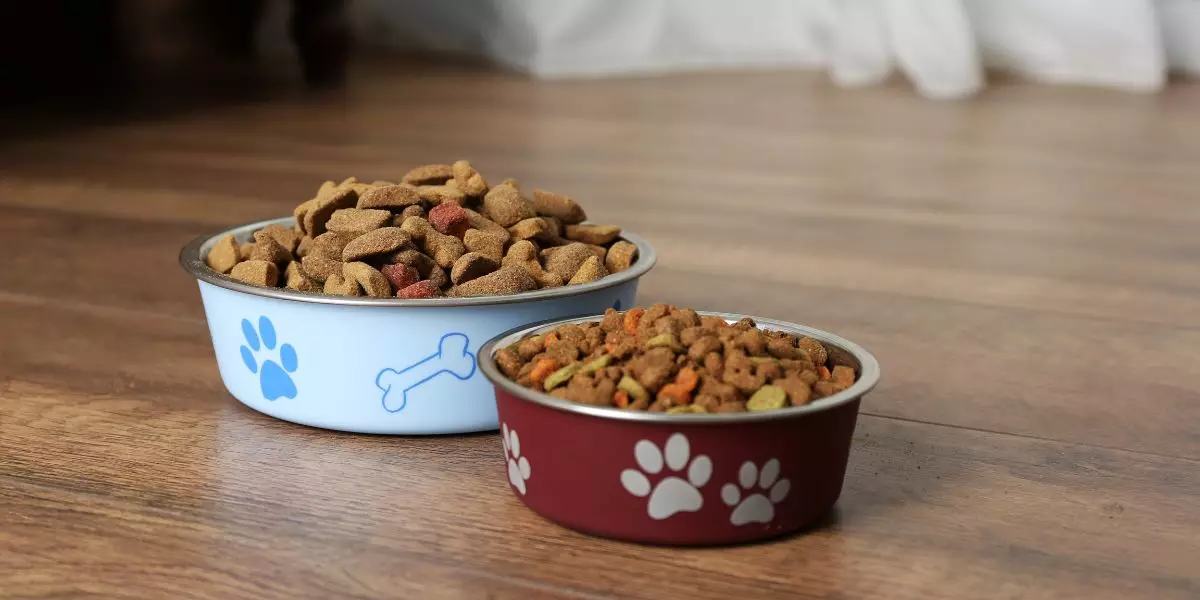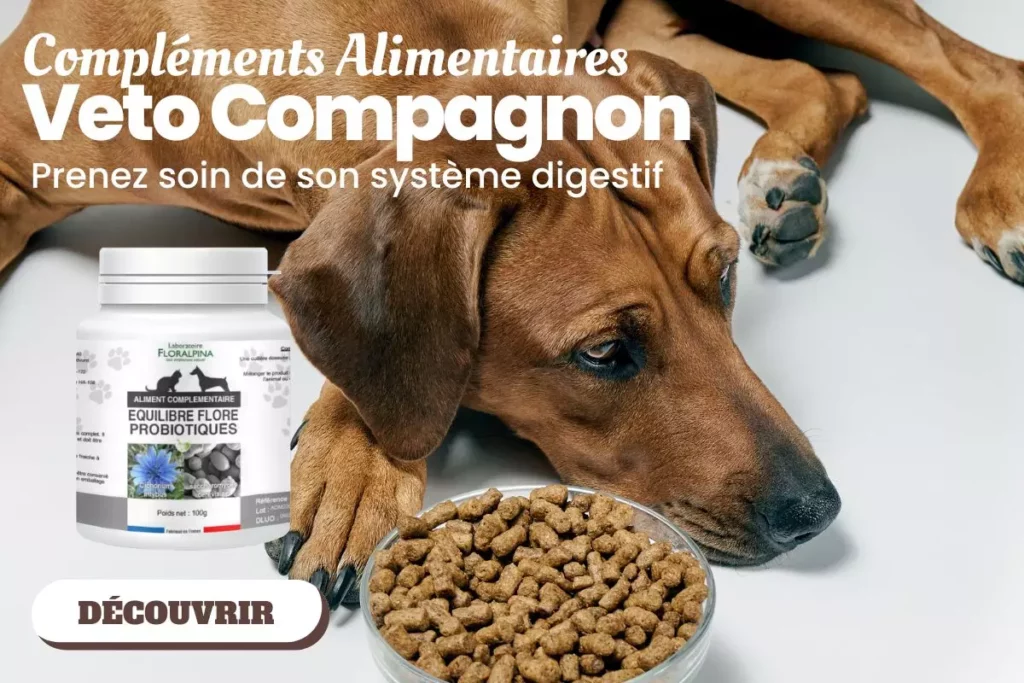The cereal-free croquettes are increasingly popular. They are the most suitable for dogs and puppies suffering fromfood intolerance or digestive disorders. However, many owners are wondering about the benefits of these croquettes and what types to choose from. Here are all the answers to your questions.
Table of Contents
ToggleDifferent types of cereal-free croquettes for dogs and puppies
The croquette without cereal is designed to meet the needs of your pet every day. Indeed, it is devoid of all kinds of cereals such as barley, wheat, corn or rice. It consists mainly of meat which is the dog's favorite food.
There are two main types of cereal-free croquette on the market. These include: Dry croquettes and wet croquettes.
Croquettes without dried cereals
This type of croquette covers all the energy needs of your canidian. Dogs, regardless of age, love their high quality food. These croquettes will force your hairball to chew slowly And for a while. This allows him to digest well And be satisfied.
Easy to store, you can buy in large quantities at home. Thus, you reduce the cost of feeding your companions. This food respects the dog diet containing only proteins, vegetables and fruit. Dry cereal-free croquettes usually include turkey, beef, chicken and good fat.
There are also fruits and vegetables for more vitamin intake. It is recommended to permanently moisturize your dog if you adopt this diet for its diet.
Croquettes without wet cereals
Composed of 80% water and 20% vegetables, these croquettes are perfectly suited for canids who drink little. They are ideal especially during periods of recovery and lactation for females. They are made up of vegetables, vitamins, pasta and nutritional additives. Unlike its dry counterpart, wet croquettes must be consumed for 24 hours after the box is opened.
How to choose the cereal-free croquettes of your dog or puppy?
Now that you've decided to opt for cereal-free croquettes, here's how to choose the ones appropriate to your dog's needs.
Choose croquettes according to morphology
It's obvious that a German shepherd and a chihuahua don't have the same Daily food requirements. If you have a little dog or a puppy, don't give him big croquettes. He'll have trouble chewing them. Similarly, a large dog will tend to swallow smaller croquettes. This may create digestion problems. So you have to choose croquettes adapted to your dog's morphology.
Choose by age and activity
An adult dog and a puppy do not have the same daily needs. A baby dog must have a rich diet because it is growing. Similarly, a sports dog will also need more protein. An elderly dog or one who spends less should not have too rich a diet. To avoid any risk ofobesity or deficiency, opt for croquettes specifically adapted to his age and activity.
Pay attention to composition
When buying cereal-free croquettes for your dog, check that the first ingredient is meat. For this, opt for croquette brands with protein level important (35 % and more). In addition, the level of carbohydrate should be as low as possible (less than 27%).
More importantly, the level of carbohydrate must be lower than that of proteins of animal origin (beef, turkey, salmon, duck, chicken, lamb, etc.).
Also, before choosing your cereal-free croquettes, make sure to talk with your veterinarian to find the right balance
What are the best cereal-free dog and puppy croquettes?
Today, there are many cereal-free croquette brands for dogs and puppies. In the face of such an offer, it is increasingly difficult to distinguish quality products from the rest. This is a problem for us because, as we know, the health of dogs and puppies goes above all through their diet. That is why we decided to present you with a list of best cereal-free croquettes for dogs and puppies. So, the next time you look for cereal-free croquettes in supermarket, you will know to which products you turn.
Among the market players that have attracted our attention are:
- Orijen : This Canadian brand, awarded repeatedly, offers croquettes containing little fat, organic, natural and responsible ingredients, and 85% fresh meat!
- Taste of the Wild : Recognized for its very high quality meat and lack of dyes, this brand is one of the best options for cereal-free croquettes.
- Ultra Premium Direct : Made of 50% meat and 50% fruit and vegetables, this French brand is suitable for sensitive dogs and improves oral hygiene.
- Pro-Nutrition Flatazor : From Made in France to a competitive price and with a more than honorable composition, Pro-Nutrition Flatazor keeps its promises.
- Crave Turkey and Chicken : This product is allergen-free and contains 60% high quality animal protein. In addition, it is made up of turkey and chicken, making it very attractive for dogs and puppies.
By choosing from these well-known brands, you can offer your dog or puppy a quality diet tailored to its specific needs.
Veterinary opinion on dog and puppy cereal-free croquettes
Cereal-free croquettes have gained popularity in recent years due to their composition that excludes cereals commonly used in animal feed. These croquettes are often preferred for dogs and puppies with food sensitivities or intolerances, including digestive disorders.
Nevertheless, draw your attention to the fact that it is not just croquettes that will define the digestive health of your animal. Indeed, it may be interesting to give dietary supplements for dog digestion.For example, some animals need to restore their intestinal flora Because they do not have enough bacteria in their intestines to digest properly. In this case, probiotics for dogs are adapted.
Returning to our sheep, the advantages of croquettes without cereals are that they are generally rich in protein from animal origin, which is more consistent with the natural diet of dogs as carnivores. In addition, they are often formulated with high quality ingredients, such as fresh meat, vegetables and fruit, to ensure a balanced nutritional intake.
However, it is important to note that not all cereal-free croquettes are identical, and it is essential to select reputable brands and carefully examine their composition. It is recommended that croquettes with high protein levels (usually above 35%) and low carbohydrate levels (less than 27%) be given priority. It is also preferable to ensure that meat is the main ingredient and that proteins of animal origin are more abundant than carbohydrates.
F.A.Q.
Why don't you give dogs croquettes without cereals?
Cereal-free croquettes are often recommended for dogs suffering from food intolerance, digestive sensitivities, or cereal allergies. Cereals such as wheat, corn, barley or rice can cause unwanted reactions in some dogs, such as skin problems, digestive disorders or allergies. Cereal-free croquettes offer an alternative by providing a more adapted diet to the specific needs of these dogs.
Are cereal-free croquettes better?
The question of whether cereal-free croquettes are better than those containing cereals raises debate among dog owners and animal health professionals. Croquettes without cereals have their advantages, especially for dogs with food intolerances or sensitivities. They are often formulated with high quality proteins and natural ingredients. However, it is important to note that each dog is different, and what works for one dog may not suit another. It is essential to choose high quality croquettes, whether or not they contain cereals, and to take into account the individual needs of each dog.
Why avoid cereal in croquettes?
Some people choose to avoid cereals in croquettes for various reasons. Cereals, especially lower quality cereals, can be more difficult to digest for some dogs. In addition, cereals are often used as a cheap source of carbohydrates and filling in animal croquettes, which can lead to over-consumption of these ingredients and nutritional imbalance. However, it is important to note that not all cereals are harmful to dogs and some may even be beneficial by providing essential nutrients. It is essential to consider the individual needs of each dog and consult a veterinarian for appropriate advice on the choice of croquettes.






